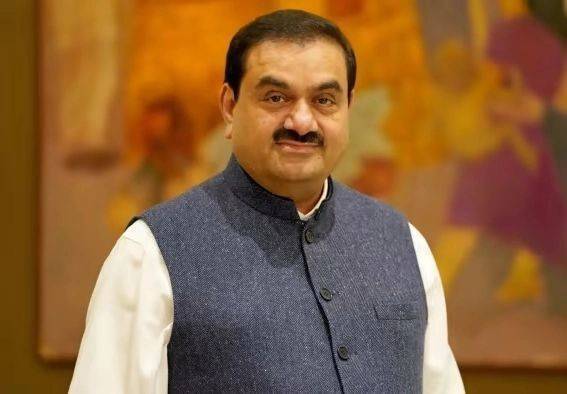Gautam Adani, the Chairman of the Adani Group, has announced his plans to retire at the age of 70, setting the stage for a major transition within his $213 billion conglomerate. This meticulously crafted succession strategy aims to ensure a seamless handover of leadership to the next generation of the Adani family while sustaining the group's remarkable growth trajectory.
The Succession Strategy
Gautam Adani’s retirement plan, projected for around 2030, involves a phased and well-structured transition of control to his four primary heirs: his sons Karan and Jeet Adani, and their cousins Pranav and Sagar Adani. Each heir will hold an equal stake in the family trust, which is designed to ensure balanced leadership and prevent potential conflicts.
Key Heirs and Their Roles:
- Karan Adani: As the Managing Director of Adani Ports and SEZ, Karan Adani plays a pivotal role in overseeing the group's extensive port operations, logistics, and transportation networks. His leadership has been critical in expanding the group's infrastructure and enhancing its global trade capabilities. Under his stewardship, Adani Ports has grown to become one of the largest private port operators in India, facilitating significant trade and economic activity.
- Jeet Adani: Jeet Adani, Director at Adani Airports, is responsible for managing India’s largest network of privately operated airports. His role also encompasses overseeing the group's defense sector and digital business ventures. Jeet's leadership in these areas is crucial for the group's diversification into new and high-growth sectors, including technology and defense, which are expected to drive future expansion.
- Pranav Adani: Serving as Director of Adani Enterprises, Pranav Adani leads the group’s agro and oil sectors. His long tenure with the company has seen substantial contributions to its growth in agriculture and energy. Pranav's expertise in these sectors is essential as the group continues to focus on sustainable and innovative solutions in energy production and agricultural development.
- Sagar Adani: As Executive Director of Adani Green Energy, Sagar Adani manages the group’s energy business, with a focus on renewable energy and sustainability. He also oversees the group's financial operations, ensuring effective management of resources and investments. Sagar's role is critical in advancing the group's commitment to clean energy and environmental stewardship.
Governance and Decision-Making
The succession plan includes a confidential agreement to govern the transition of stakes in the conglomerate's various firms to the heirs. This agreement is designed to provide a clear framework for managing the transition, addressing potential challenges, and ensuring a smooth handover of responsibilities.
Even after Gautam Adani steps back, the joint decision-making process among the heirs will continue. This collaborative approach aims to maintain stability and ensure that the group's strategic direction remains consistent. By involving multiple family members in key leadership roles, the plan seeks to leverage their diverse expertise and perspectives, fostering a more dynamic and adaptable leadership structure.
Impact on the Adani Group’s Future
The timing of this succession plan is significant as the Adani Group continues to experience substantial growth. Recent reports highlight a dramatic increase in profits for Adani Enterprises, driven by the group's expansion into renewable energy and other strategic investments. This growth underscores the effectiveness of the group's strategic initiatives and its commitment to innovation and sustainability.
The Adani Group's focus on renewable energy has positioned it as a leader in the sector. The group's investments in solar and wind energy projects are not only contributing to India's renewable energy goals but also driving global interest in sustainable energy solutions. The succession plan is expected to play a critical role in sustaining this momentum, ensuring that the group's leadership remains aligned with its long-term vision and growth objectives.
Broader Implications for Family Businesses
Adani’s succession plan offers valuable lessons for other family-owned businesses. Effective succession planning is crucial for ensuring the long-term success and sustainability of any enterprise. Adani’s approach, which emphasizes a gradual and systematic transition, serves as a model for managing leadership changes in family-run conglomerates.
The broader implications of this transition extend beyond the Adani Group. As one of India’s largest and most influential conglomerates, the group’s approach to succession will be closely observed by industry analysts, stakeholders, and competitors. The successful execution of this plan could influence how other family businesses approach their own succession strategies, particularly in terms of balancing family interests with business sustainability.
Recent Developments and Industry Context
In recent years, the Adani Group has made significant strides in various sectors. The group’s expansion into new areas, such as defense and digital infrastructure, reflects its strategy to diversify and capture emerging market opportunities. Additionally, the group's investments in green energy align with global trends toward sustainability and climate action.
The group's success in these areas has contributed to its strong financial performance. For instance, Adani Enterprises reported a notable increase in its first-quarter profits, driven by its strategic investments in renewable energy and other high-growth sectors. This financial success underscores the effectiveness of the group's strategic planning and its ability to adapt to evolving market conditions.
Way forward
Gautam Adani’s planned retirement and the subsequent transfer of control to his sons and cousins represent a pivotal moment for the Adani Group. The detailed succession plan is designed to ensure a smooth transition while preserving the group's legacy and supporting its continued growth. As Adani prepares to step back, his focus on a systematic and collaborative approach to leadership highlights his commitment to the long-term sustainability of his business empire.
Image source- Pinterest









.png)